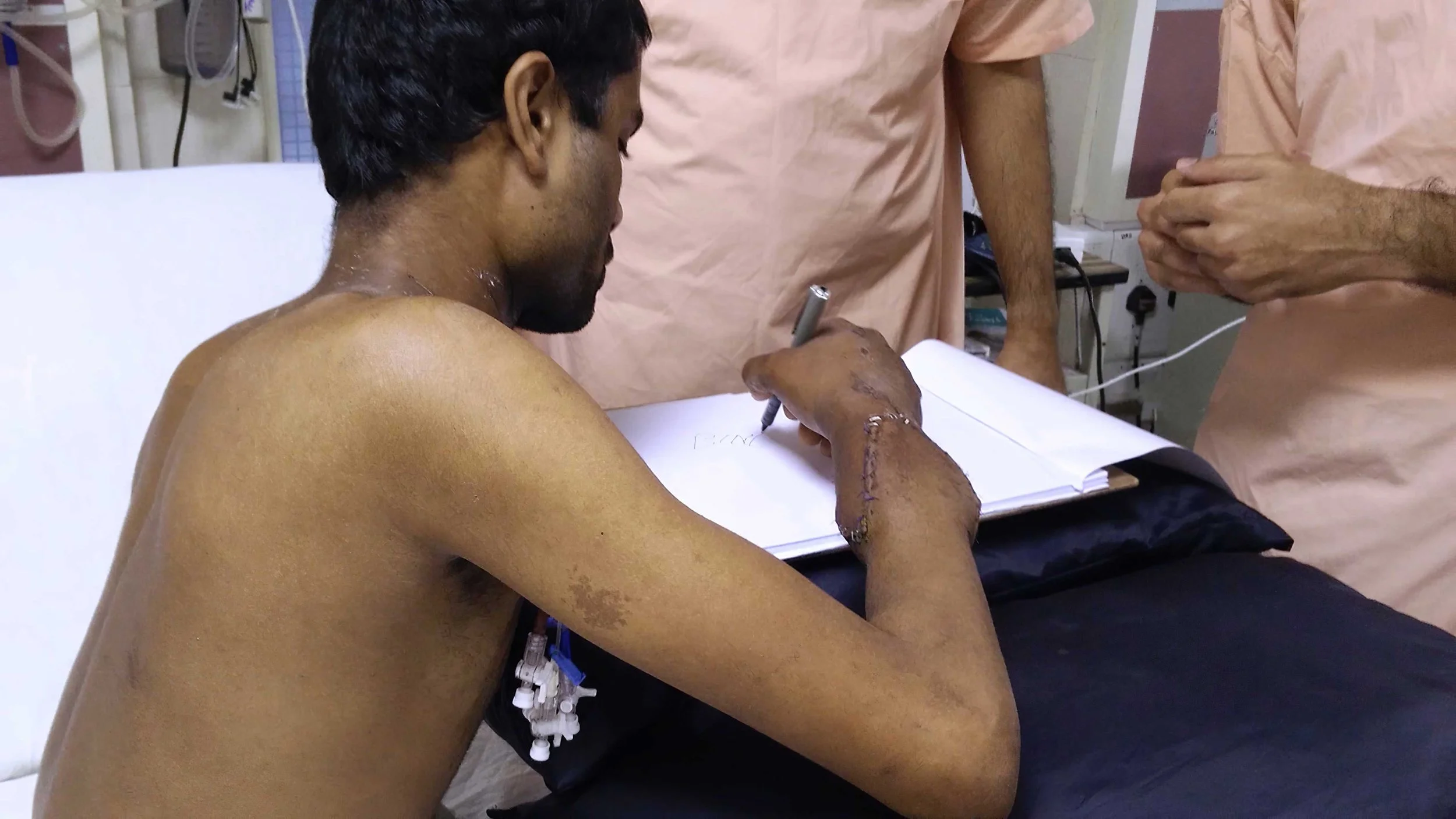Home > Hand/Arm Transplant > Functional Outcomes
Functional Outcomes
Hand Functions
Hand/arm transplant recipients will regain many of their hand functions after hand/arm transplantation. For example, recipients can regain the ability to hold, grasp, sense touch, feel temperature, and do daily activities such as eating, driving, dressing, shaving, and writing.1,2Manu T.R. and Abdul Rahim, India’s first double hand/arm transplant recipients, demonstrate holding and cutting a piece of paper with their new hands, a little over 1 year after their transplant surgeries.
(Amrita Hospital)
Manu T.R. and Abdul Rahim shake hands over 1 year after their hand/arm transplant surgeries at Amrita Hospital in India.
(Amrita Hospital)
Abdul Rahim, bilateral hand transplant recipient, arm wrestles with his son.
(Amrita Hospital)











